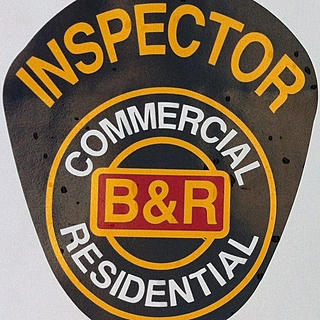Expert Tips for First-Time Home Buyers
- Billy Jack Barrow
- Jul 15, 2025
- 4 min read
Buying your first home is an exciting journey. It can also be overwhelming. With so many decisions to make, it is easy to feel lost. But don’t worry, you are not alone. Many first-time home buyers share the same feelings. This guide will provide you with expert tips to help you navigate the home buying process with confidence.
Understand Your Budget
Before you start looking at homes, it is crucial to understand your budget. Knowing how much you can afford will save you time and stress later on.
Calculate Your Income: Start by calculating your total monthly income. Include all sources of income, such as salaries, bonuses, and any side jobs.
Assess Your Expenses: List all your monthly expenses. This includes rent, utilities, groceries, and any debts.
Determine Your Down Payment: Most lenders require a down payment. This is usually between 3% to 20% of the home price. The more you can put down, the lower your monthly payments will be.
Get Pre-Approved for a Mortgage: Before you start house hunting, get pre-approved for a mortgage. This will give you a clear idea of how much you can borrow and show sellers you are serious.
Research the Market
Understanding the real estate market in your desired area is essential.
Look at Recent Sales: Check out homes that have recently sold in your area. This will give you an idea of what similar homes are selling for.
Consider Future Developments: Research any planned developments in the area. New schools, parks, or shopping centers can increase property values.
Visit Open Houses: Attend open houses to get a feel for the market. This will help you understand what you like and dislike in a home.
Choose the Right Location
Location is one of the most important factors when buying a home.
Think About Your Commute: Consider how far you are willing to commute to work. A longer commute can affect your quality of life.
Check Local Amenities: Look for nearby schools, parks, and grocery stores. These can make your life easier and increase your home’s value.
Research Neighborhood Safety: Safety is a priority for many buyers. Check crime rates in the area to ensure you feel secure.
Work with a Real Estate Agent
A good real estate agent can be your best ally in the home buying process.
Find an Experienced Agent: Look for an agent who has experience working with first-time buyers. They can guide you through the process and answer your questions.
Communicate Your Needs: Be clear about what you are looking for in a home. This will help your agent find properties that match your criteria.
Trust Their Expertise: Your agent knows the market. Trust their advice on pricing and negotiations.
Make a Wish List
Creating a wish list can help you focus on what you really want in a home.
Prioritize Your Needs: List the features that are most important to you. This could include the number of bedrooms, a backyard, or a garage.
Be Realistic: While it is great to have a wish list, be realistic about what you can afford.
Stay Flexible: Sometimes, you may need to compromise on certain features. Keep an open mind as you search for your home.
Attend Home Inspections
Once you find a home you like, it is important to attend the home inspection.
Understand the Process: A home inspection checks for any issues with the property. This includes the roof, plumbing, and electrical systems.
Ask Questions: Don’t hesitate to ask the inspector questions. They can provide valuable insights about the home.
Use the Report: If the inspection reveals issues, you can use this information to negotiate repairs or a lower price.
Be Prepared for Closing Costs
Closing costs can add up quickly, so it is important to be prepared.
Know What to Expect: Closing costs typically range from 2% to 5% of the home’s purchase price. This includes fees for the loan, title insurance, and inspections.
Budget Accordingly: Make sure to budget for these costs in addition to your down payment.
Ask for Help: Some lenders offer assistance with closing costs. Don’t hesitate to ask about your options.
Stay Organized
The home buying process involves a lot of paperwork. Staying organized can help you keep track of everything.
Create a Checklist: Make a checklist of all the documents you need. This can include pay stubs, tax returns, and bank statements.
Use a Folder: Keep all your documents in one folder. This will make it easier to find what you need when you need it.
Set Reminders: Use your phone or calendar to set reminders for important deadlines, such as loan applications and inspections.
Don’t Rush the Process
Buying a home is a big decision. Take your time to ensure you make the right choice.
Take Breaks: If you feel overwhelmed, take a break from house hunting. This can help you clear your mind and refocus.
Revisit Your Priorities: As you look at homes, revisit your wish list. Make sure you are still focused on what is most important to you.
Trust Your Instincts: If something doesn’t feel right, don’t be afraid to walk away. There are plenty of homes out there.
Celebrate Your New Home
Once you have closed on your new home, take a moment to celebrate.
Host a Housewarming Party: Invite friends and family over to show off your new space. This can help you feel more settled.
Personalize Your Space: Take your time to decorate and make the home your own.
Enjoy the Journey: Remember, buying a home is a journey. Enjoy the process and the memories you will create.

As you embark on this exciting journey, remember that preparation is key. By following these expert tips, you can navigate the home buying process with confidence. Take your time, do your research, and trust your instincts. Your dream home is out there waiting for you. Happy house hunting!







Comments